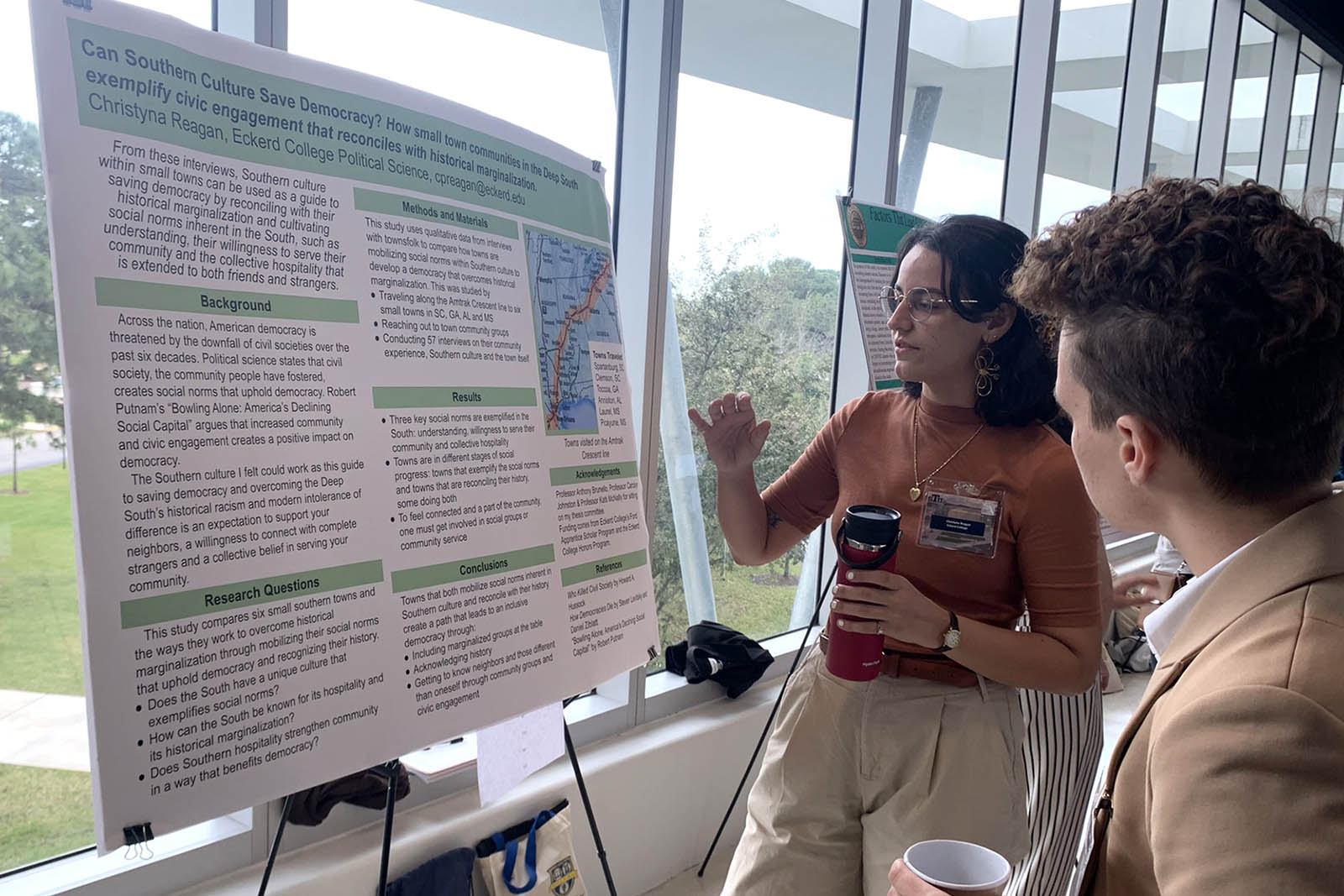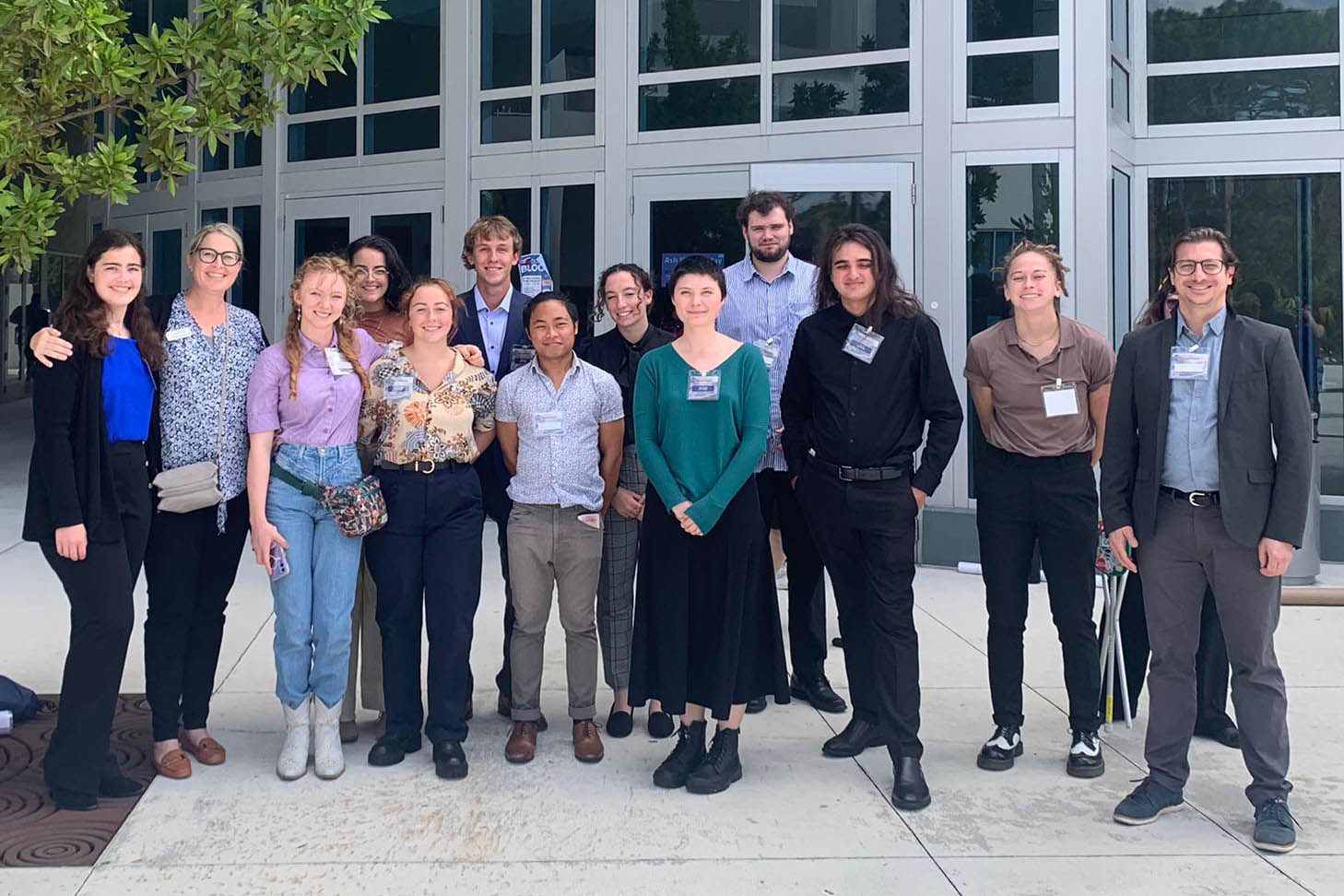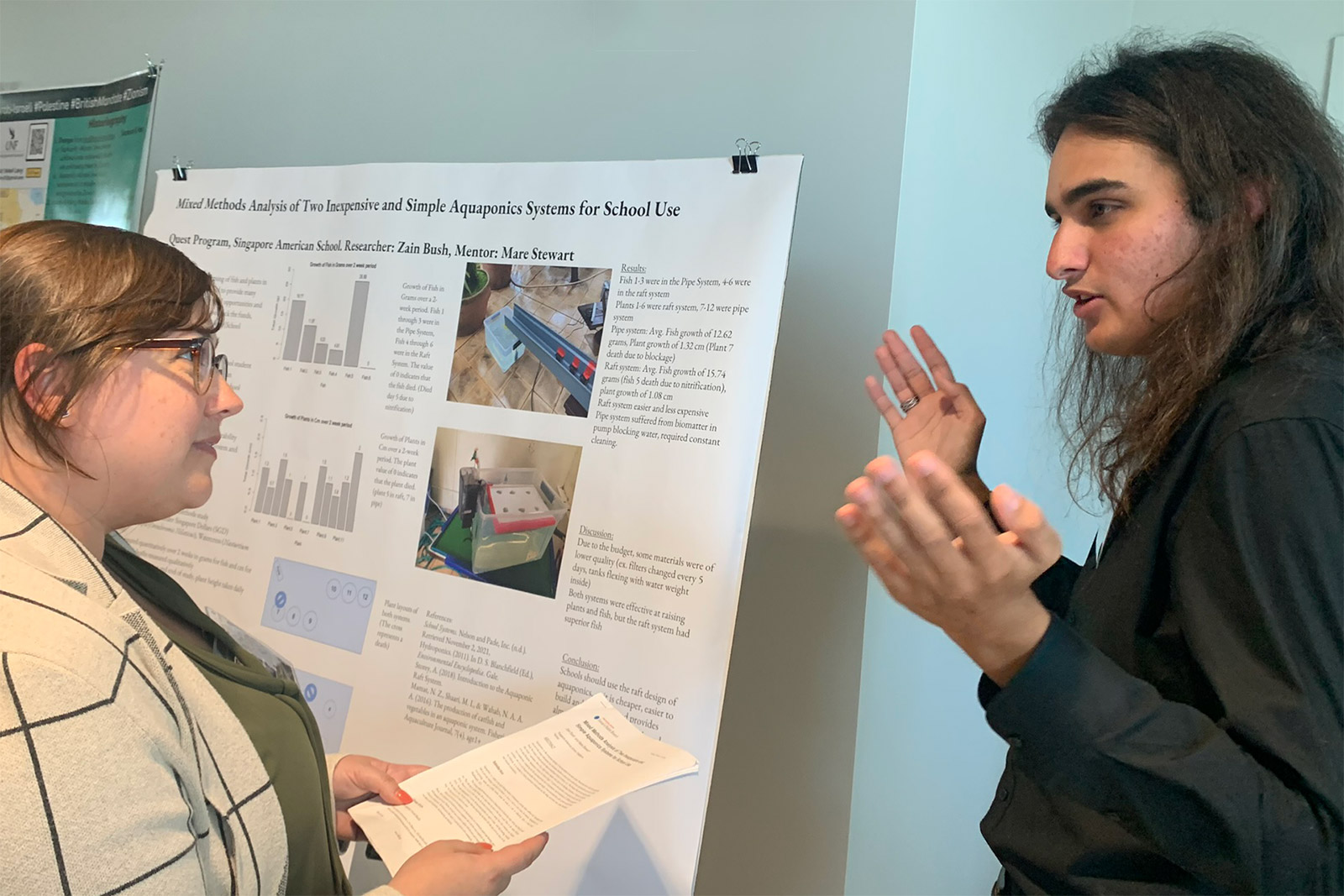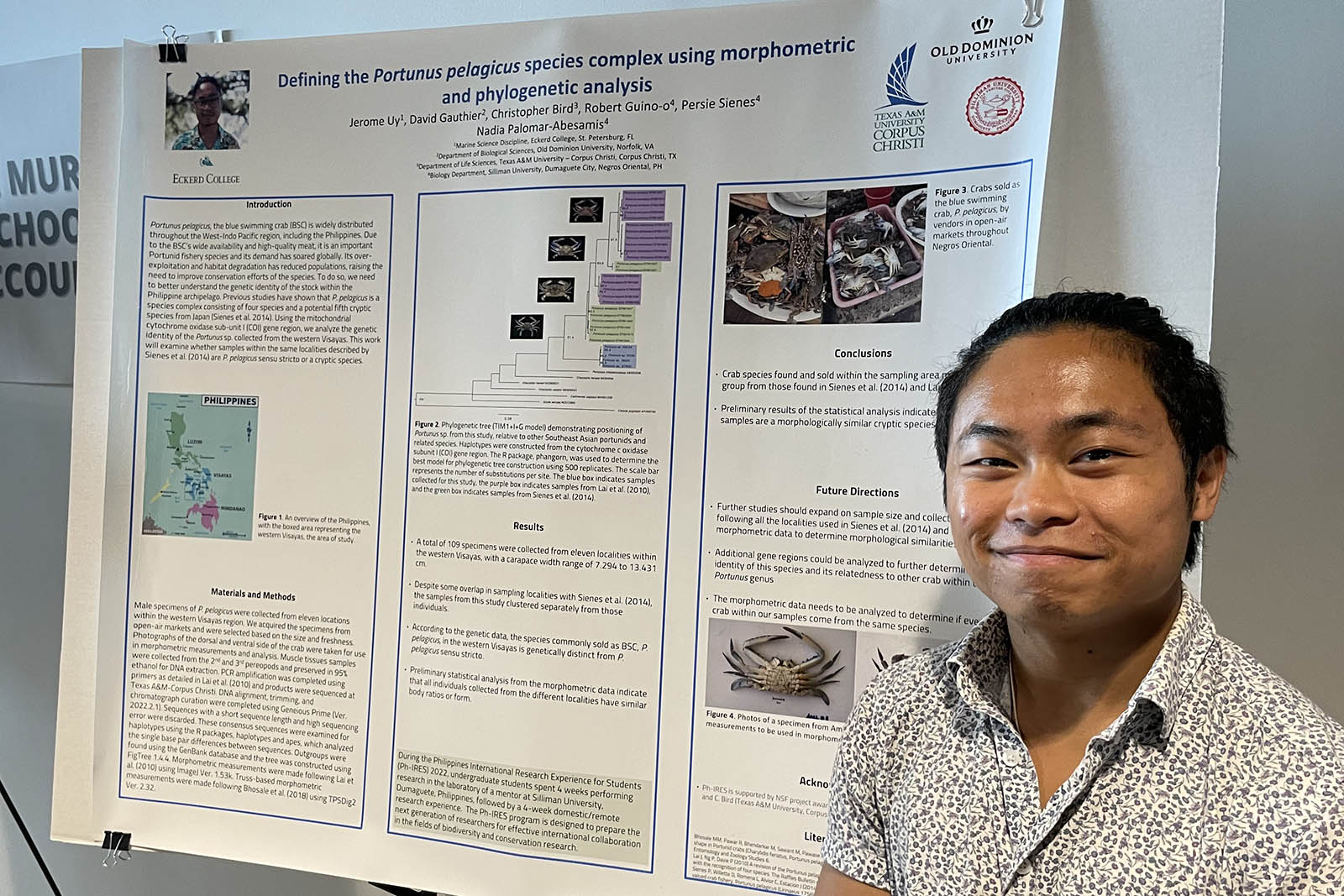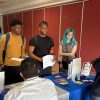The research topics ranged from how a human population spike in Florida affects the Florida manatee to whether Southern culture can save democracy.
A group of 12 students from Eckerd College traveled recently to St. Thomas University in Miami Gardens to take part in the annual Florida Undergraduate Research Conference. The students presented their research along with more than 600 other undergraduates from around the state. The Eckerd cohort was one of the largest among colleges of Eckerd’s size.
The group was led by Kathleen “Kat” Robinson, Ph.D., Eckerd’s assistant dean of faculty, and Michael Goyette, Ph.D., visiting assistant professor of classics at Eckerd. The Eckerd College INSPIRED program—which seeks to provide students with opportunities to conduct and participate in scholarly research, scientific experimentation and artistic performance—supported the trip.
“The conference is put on annually to give undergraduates the space to share their research and get an opportunity to be part of that experience,” Robinson explains. “The research from the Eckerd students ranged from political science to marine science to religious studies. And we had a first-year student, which is amazing, as well as sophomores, juniors and seniors.”
Elianna Tenace, a sophomore biochemistry and humanities student from Colorado Springs, Colorado, focused her research on the writings of 19th-century Scottish philosopher Lady Mary Shepherd. Elianna titled her presentation “The World Must Be Measured by Eye—Dreams and Madness in the Philosophies of Mary Shepherd.”
“I found out about Mary Shepherd from a class I had with philosophy professor Dr. [Louise] Daoust,” Elianna says. “Mary Shepherd wrote extensively on the relationship between cause and effect, and her model for this concept is quite unique.
“[The conference] was really wonderful,” Elianna adds. “I got to talk with so many people and we had really interesting conversations. Just to connect with people through this work was rewarding. And Dr. Robinson and Dr. Goyette were very gracious and a calming presence that was invaluable to us.”
For Nick Peterson, a junior animal studies student from Saint Paul, Minnesota, his research for “Human Population Spike in Florida: Effects on the Florida Manatee” was essential but also unsettling. “I was volunteering at the Marine Mammal Pathobiology Lab on campus, doing necropsies on manatees,” he says, “and one of the people who works there shared with me that the number of manatees that are dying has grown substantially in the last 20 years. There are a variety of reasons, but the main cause is boat strikes. There has also been a huge loss of seagrass caused by boats, which leads to starvation.
“But the whole experience of presenting in front of other researchers is something I’ve never done before. It was a good experience, and good practice.” Nick adds that he’ll continue his work by doing an internship this summer at the Clearwater Marine Aquarium.
The conference gave all the students valuable experience sharing their research, Robinson says, “whether they’re planning to go on to graduate school or the workplace. That’s something that’s really rare. Most undergraduate students don’t get to share their research. But all but two of our students actually had two presentations this year—one at St. Thomas and one at the annual Eckerd College Research Symposium in March.”
In addition to Elianna and Nick, these Eckerd students presented work with these titles:
- Zain Bush, a first-year marine science student from Singapore: “How Can a High School Student with Little to No Building Experience Construct an Inexpensive and Reliable Aquaponics System for School Usage?”
- Eli Cummins-Mikkalson, a junior psychology student from Portland, Oregon: “The Effect of Income on Anxiety During the COVID-19 Pandemic”
- Katherine Foree, a senior animal studies and psychology student from Austin, Texas: “The Threat of Insularization Facing the Amboseli Ecosystem—Kimana Area Conservancies”
- Olivia Hager, a senior sociology student from New Port Richey, Florida: “Building a God: A Qualitative Study Regarding the Spiritual Development of First-Year College Students”
- Helena Lewis, a sophomore marine science student from Austin, Texas: “Applying Baited Underwater Remote Video Techniques to Document Behavioral Responses to Ecologically Relevant Prey Chemical Stimuli”
- Christyna Reagan, a senior political science and women’s and gender studies student from Concord, North Carolina: “Can Southern Culture Save Democracy? How Small Town Communities in the Deep South Exemplify Civic Engagement that Reconciles with Historical Marginalization”
- Madeline Sheppard, a sophomore biology student from Decatur, Georgia: “Tricks Not Treats: Wolbachia’s Manipulation of Sex in Infected D. Subquinaria Offspring”
- Jerome Uy, a senior marine science and environmental studies student from Winnetka, California: “Defining the Portunus Pelagicus Species Complex Using Morphometric and Phylogenetic Analysis”
- Sam Velasco, a senior marine science and ancient studies student from Jacksonville, Florida: “Describing the Microbiome of an Ecologically Relevant Species, Lagodon Rhomboides”
- Emily Waterhouse, a senior geosciences student from Dudley, Massachusetts: “Using XRD to Determine Silicate Sources of Sediments Following the DHW Spill”





